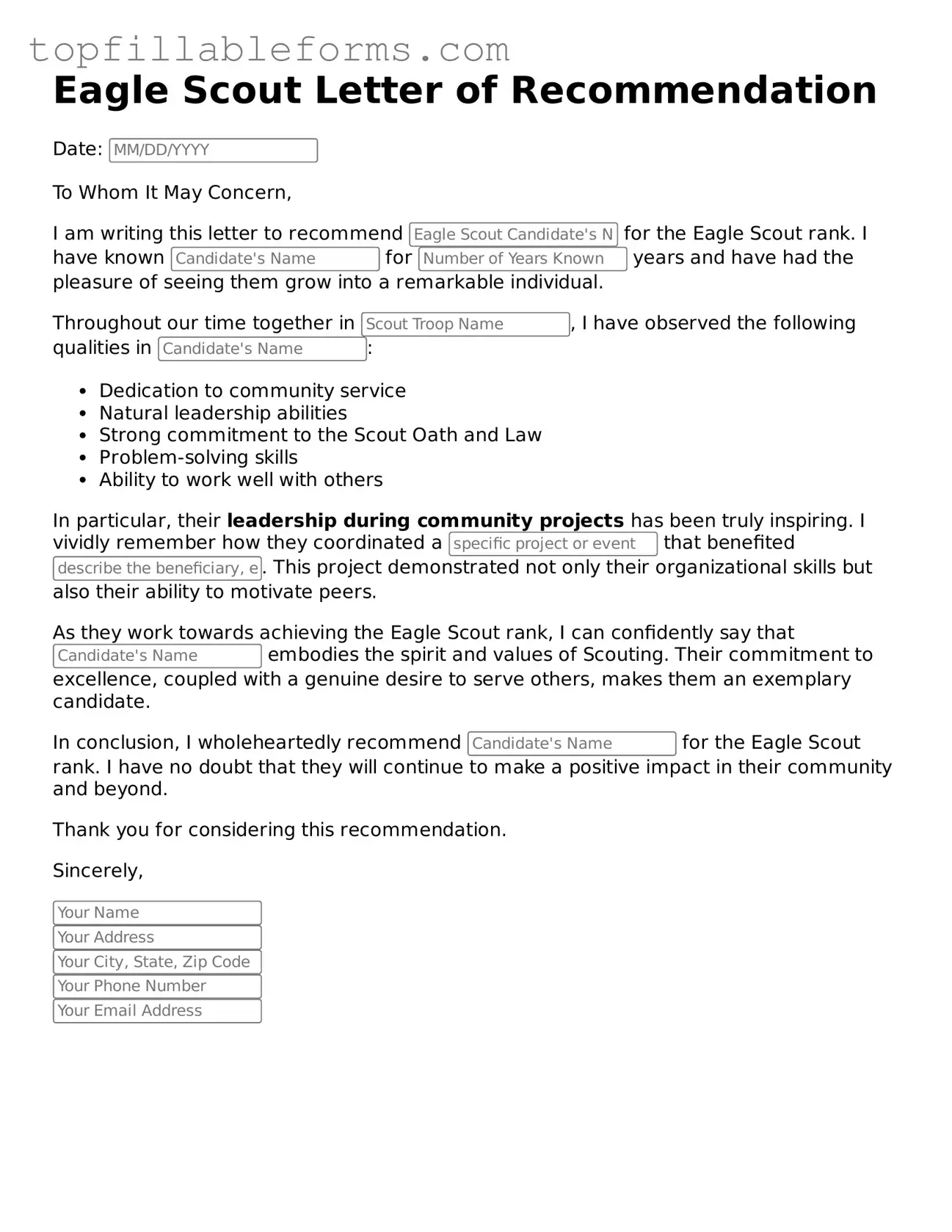Free Eagle Scout Letter of Recommendation Form
The Eagle Scout Letter of Recommendation form is a crucial document in the journey to achieving the rank of Eagle Scout. This form allows individuals to provide their insights and support for a Scout’s character and accomplishments. It plays an important role in the evaluation process, helping to highlight the Scout's leadership skills and commitment to community service.
Open Eagle Scout Letter of Recommendation Editor Here

Free Eagle Scout Letter of Recommendation Form
Open Eagle Scout Letter of Recommendation Editor Here
Finish the form now and be done
Finish your Eagle Scout Letter of Recommendation online by editing, saving, and downloading fast.
Open Eagle Scout Letter of Recommendation Editor Here
or
▼ PDF File
